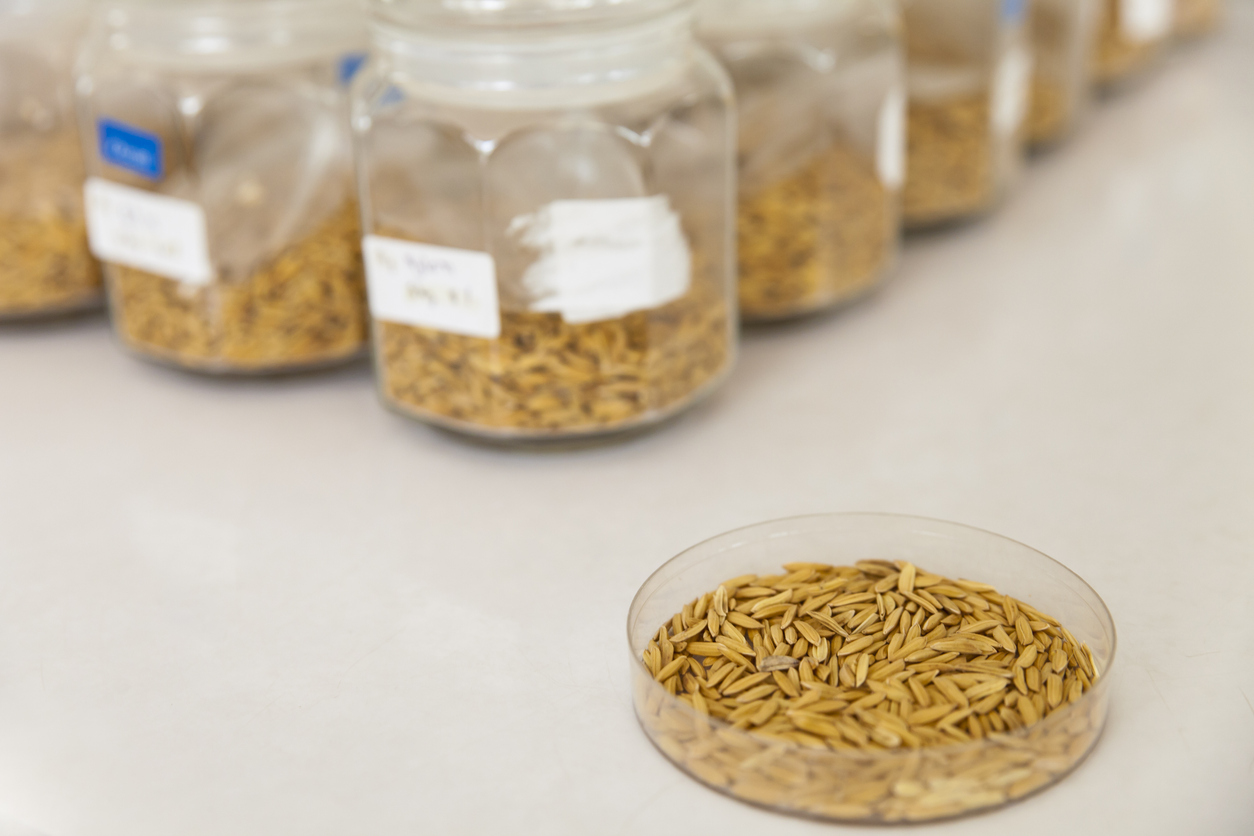
Study Shows a Donor-DNA-free CRISPR-Cas-based Approach to Gene Knock-up in Rice
December 1, 2021| |
Researchers from China Agricultural University and partners reported that new genes and traits can be developed in rice through designed large-scale genomic inversion or duplication using CRISPR-Cas9. The results are published in Nature Plants.
Structural variations, such as inversion and duplication, contribute to vital agronomic characteristics in crops as well as driving genetic diversification. The potential of designed structural variations in breeding using gene editing tools is still to be explored. Thus, the researchers caused an inversion on chromosome 1 in rice which resulted in a designed promoter swap and a duplication on chromosome 2, creating a novel gene cassette. Then, the original CP12 and Ubiquitin2 genes were highly expressed in leaves, leading to the increased expression of PPO1 and HPPD in edited plants with homozygous SV alleles and conferred herbicide resistance without any significant impact on other important agronomic characteristics.
The results of the study provide a donor-DNA-free strategy, which expands the use of CRISPR-Cas9 in plant and animal improvements.
Read more findings in Nature Plants.
| |
You might also like:
- Pocket K No. 54: Plant Breeding Innovation: CRISPR-Cas9
- Rice Scientists Use CRISPR-Cas9 to Develop High-yielding Semi-dwarf Rice Lines
- CRISPR-Cas9 Used to Increase Rice Resistance to Abiotic Stresses
Biotech Updates is a weekly newsletter of ISAAA, a not-for-profit organization. It is distributed for free to over 22,000 subscribers worldwide to inform them about the key developments in biosciences, especially in biotechnology. Your support will help us in our mission to feed the world with knowledge. You can help by donating as little as $10.
-
See more articles:
-
News from Around the World
- Report Highlights Alarming Increase of Hunger in Latin America and the Caribbean
- US Lawmakers Urge Biden to Enforce USMCA Compliance on Biotech
- Popular Pearl Millet Hybrid Improved through Genomics-Assisted Breeding
- APEC Workshop Aims to Bridge Gaps with Scicom
- Australian OGTR Invites Public Comments on GM Wheat and Barley Field Trial
- Biotechnology Approaches in Crop Improvement in Thailand: Genetic Engineering and Genome Editing
- ISAAA Asian Course Tackles Value Chain of LMOs, Biosafety Regulations, and Communication
- Scientists Discover Barley Gene Has Resistance to Different Pathogens
-
Research Highlights
- Researchers Boost Lysine Content in Camelina Seeds
-
Plant
- Scientists Produce New Antibiotics Using CRISPR-Cas9
- Guidelines Expanded for Arthropod Gene Drive Research
- Study Shows a Donor-DNA-free CRISPR-Cas-based Approach to Gene Knock-up in Rice
-
Read the latest: - Biotech Updates (February 11, 2026)
- Gene Editing Supplement (January 28, 2026)
- Gene Drive Supplement (February 22, 2023)
-
Subscribe to BU: - Share
- Tweet

